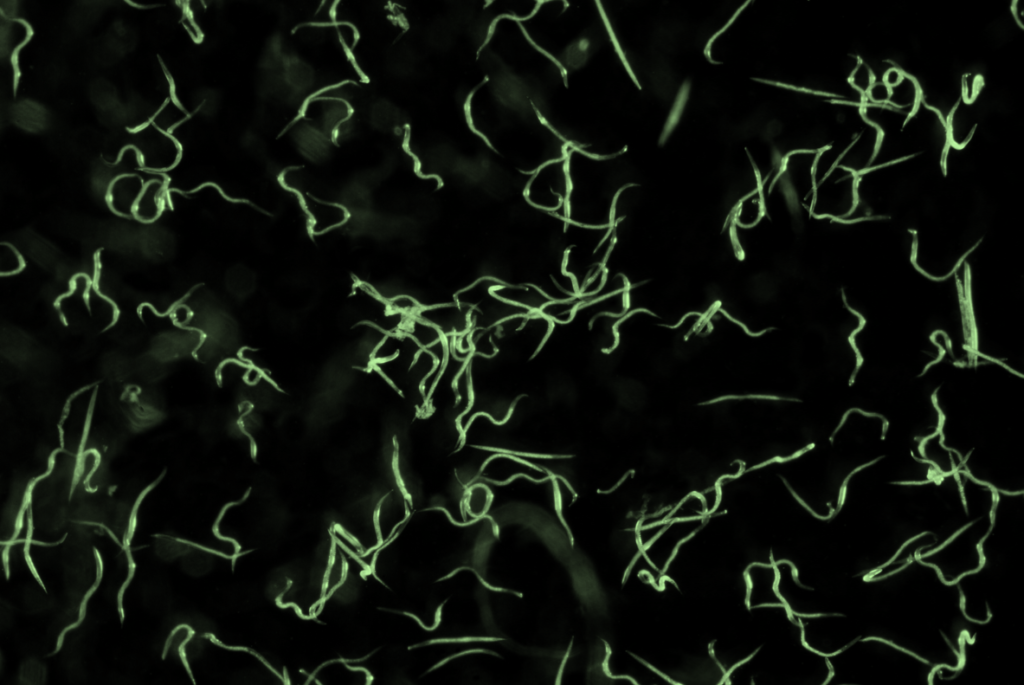
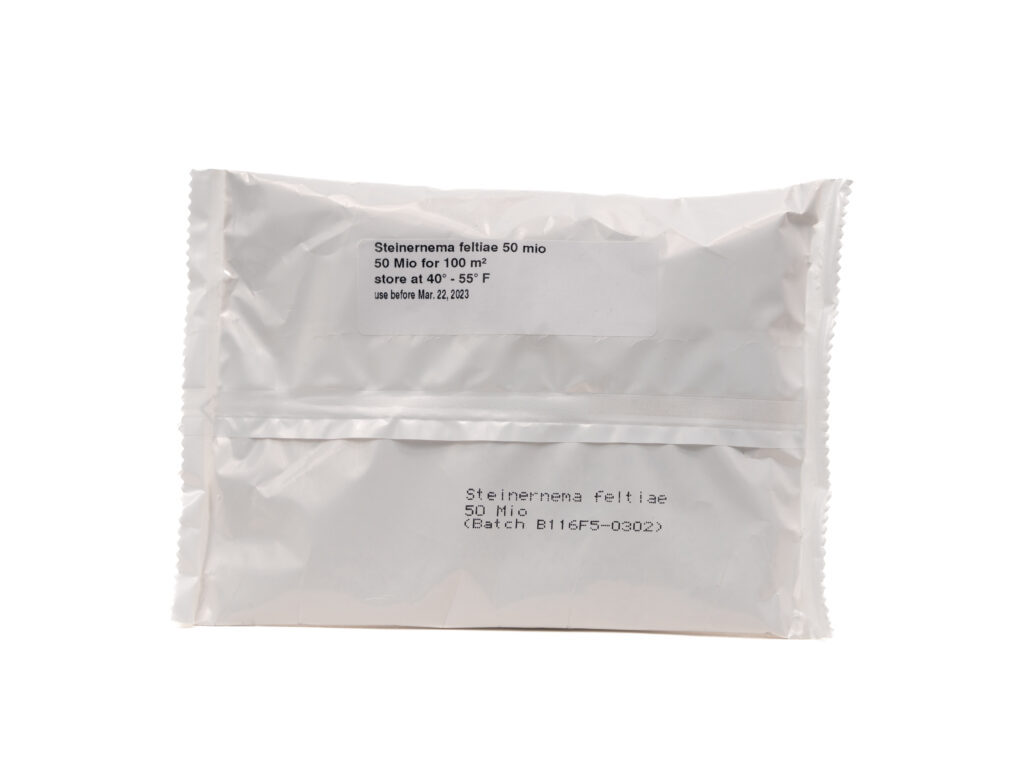
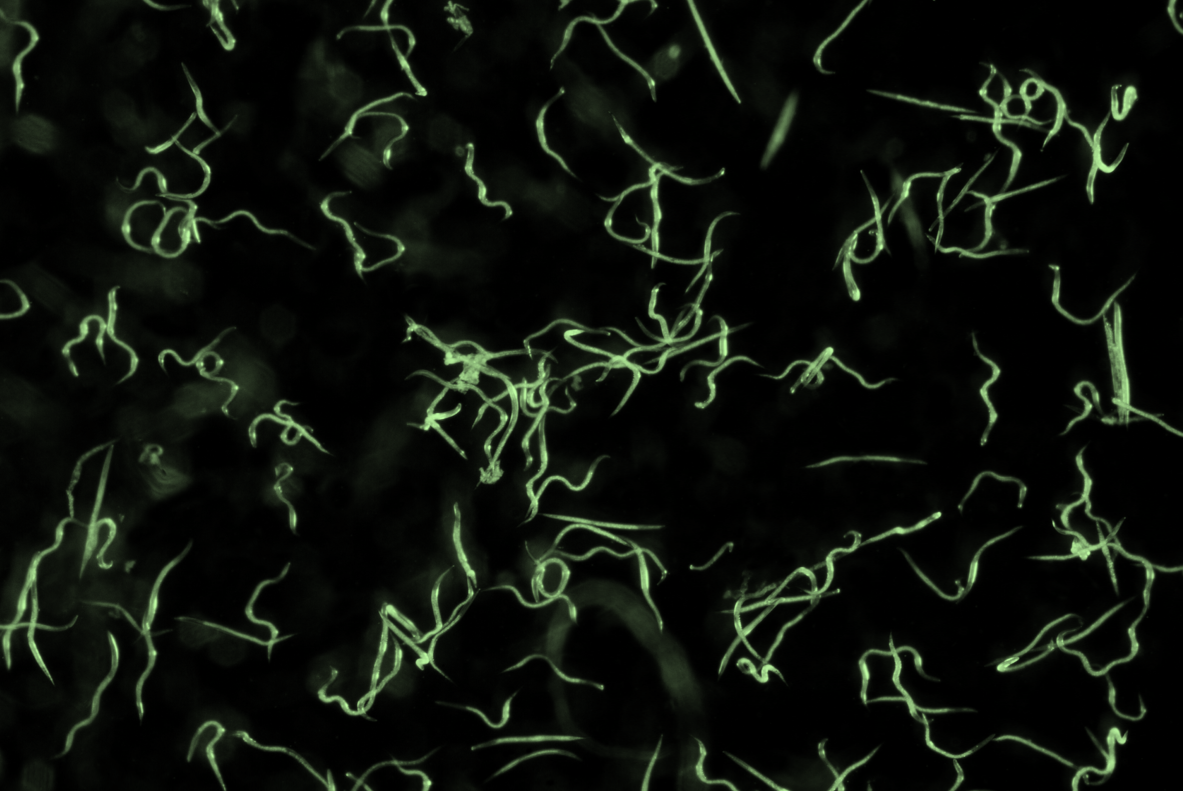
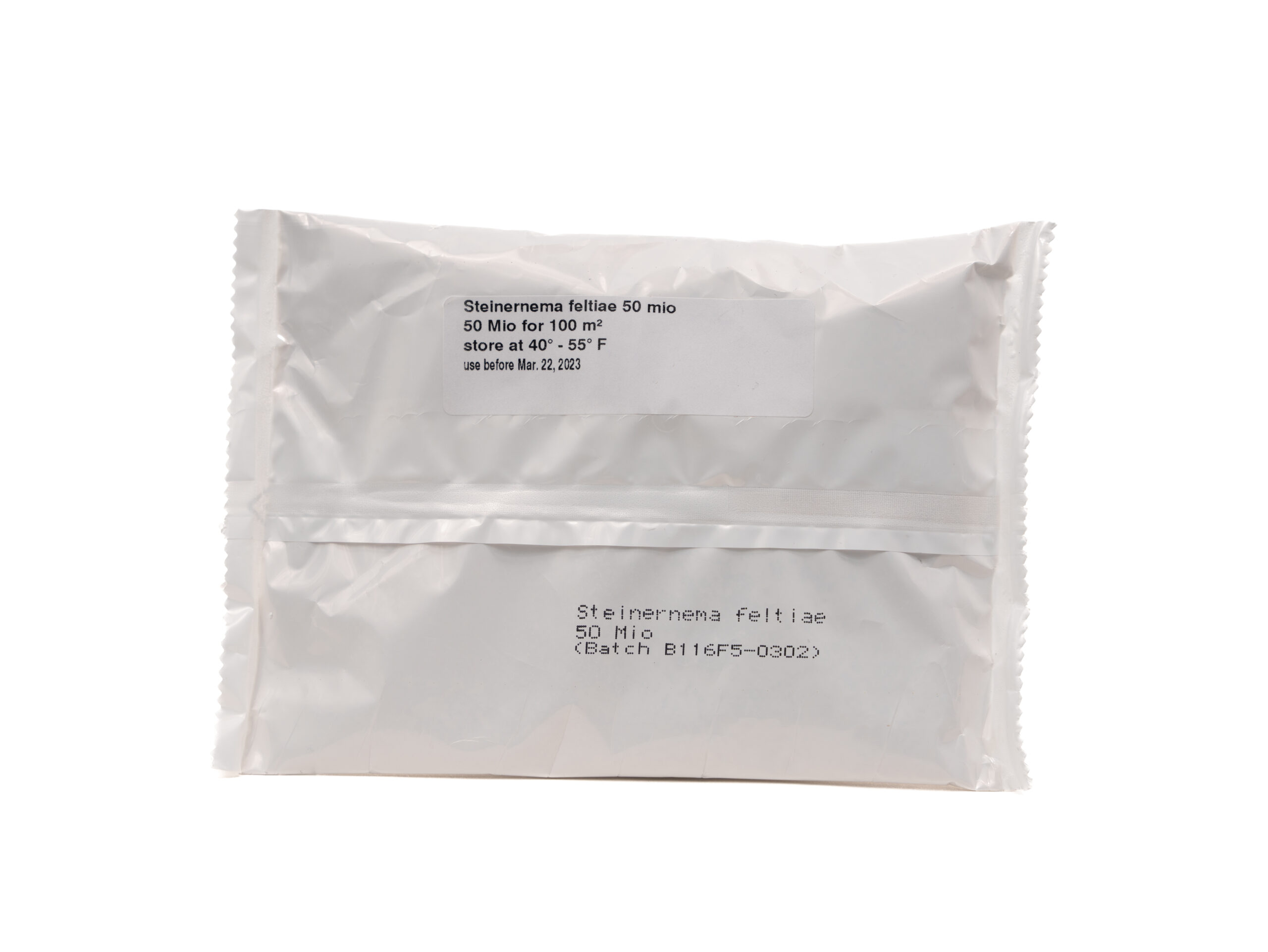
BioSf
Product description


Targeted crops
- Avocado
- Blueberries
- Cannabis
- Citrus
- Coffee
- Cucumbers
- Eggplants
- Grapes
- Melon
- Mushrooms
- Ornamental crops
- Peppers
- Roses
- Strawberries
- Tomatoes
- Vines

Targeted pests
- Black vine weevil
- Chili Thrips
- Codling moth
- Fungus gnats
- Leafminer
- Western flower thrips

Application Instructions
To ensure the best outcome, BioSf can be administered as a drench, micro-irrigation, or spray application. It is advisable to apply it early in the morning or late in the evening to minimize the impact of heat and sunlight. The soil surface should be adequately moist during application, and it is recommended to maintain the soil moisture for 3-4 weeks after the application. The dosage of BioSf should be adjusted according to the level of pest pressure. While BioSf is generally compatible with most fungicides and insecticides, tank mixing is not recommended. It is important to avoid the simultaneous use of all of them.

Storage Instructions
For best results, keep the product at a temperature between 4 and 8°C (39-46°F) and protect it from direct sunlight. To preserve the quality optimally, avoid freezing.
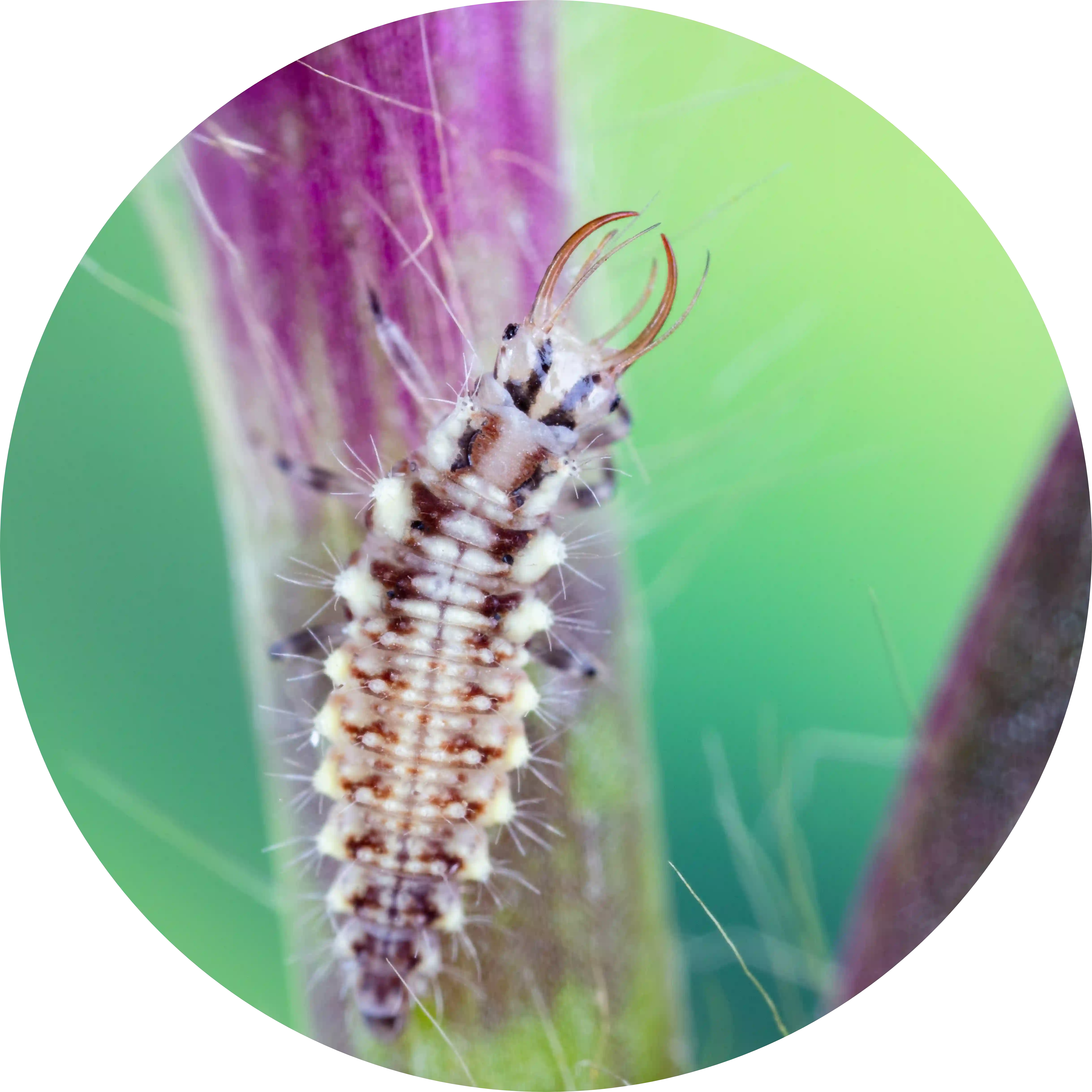


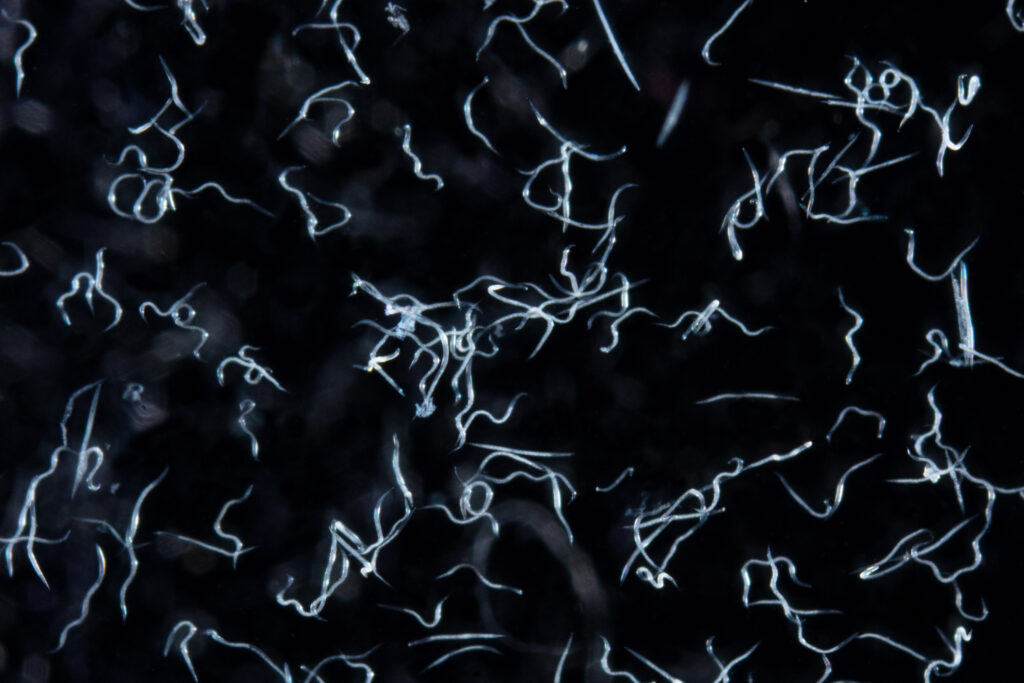
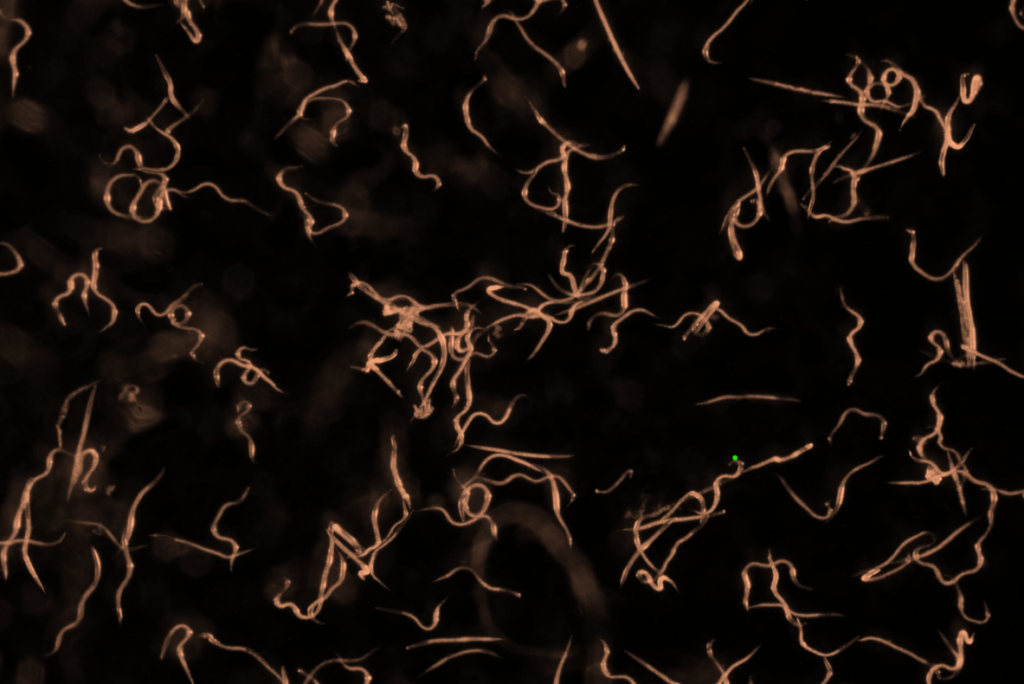
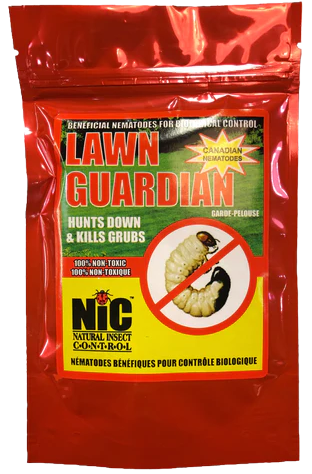

Description
Steinernema feltiae is a species of entomopathogenic nematode (EPN), which means that it is a microscopic roundworm that parasitizes insects and other arthropods. These nematodes are used as biological control agents to manage pest populations in agriculture, horticulture, and forestry.
BioSF contains Steinernema feltiae nematodes used to control a variety of soil-dwelling insect pests, including fungus gnats, thrips, and root aphids. When applied to the soil, the nematodes actively seek out and infect the larvae of these pests, killing them within a few days. BioSF is often used as a component of integrated pest management (IPM) programs, as it provides a non-toxic, environmentally friendly alternative to chemical insecticides.